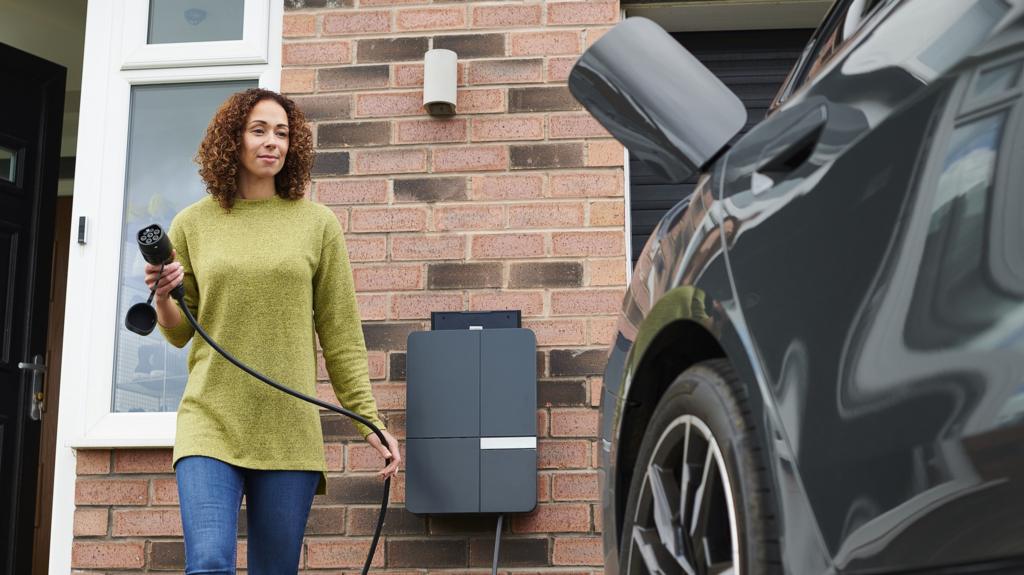The government intends to reduce the financial burden of electric vehicle (EV) acquisition for consumers, according to statements made to the BBC by the Transport Secretary.
However, Heidi Alexander, when interviewed by Laura Kuenssberg on Sunday, refrained from confirming whether direct grants would be offered to incentivize motorists to switch to EVs. This follows a report in the Telegraph suggesting a potential £700 million subsidy package from Labour.
Instead, Alexander highlighted a £25 million allocation for local councils to install “cross-pavement gullies,” facilitating EV charging for residents without private driveways. This is coupled with a £63 million investment in broader charging infrastructure.
While the Conservatives acknowledged the investment, they criticized the government for allegedly “forcing” families into purchasing “expensive” EVs.
The average cost of a new EV in the UK is currently near double that of a conventional petrol vehicle, standing at approximately £22,000. However, some Chinese manufacturers are beginning to offer EVs for as little as £18,000.
During her appearance on Sunday with Laura Kuenssberg, Alexander stated, “We are going to be making some announcements later this week on how we make it more affordable for people to buy an electric vehicle.”
Pressed on whether these measures would involve taxpayer-funded subsidies akin to those in the US, as speculated, Alexander declined to comment, reiterating that an announcement was forthcoming later in the week.
She did assert, “I can guarantee to your viewers that we will be making it cheaper for those who do want to make the switch to an electric vehicle.”
The Department for Transport has refrained from providing further details at this time.
According to the latest data from the Society of Motor Manufacturers and Traders (SMMT), approximately one-fifth of new cars sold in the first half of the year were electric vehicles.
Nevertheless, EV sales remain significantly below the mandated targets set for manufacturers, in anticipation of the 2030 ban on the sale of new petrol and diesel cars.
Alexander acknowledged to the Telegraph that the high cost of EVs is a deterrent for many potential buyers.
“It was right that the government thinks in the round about what we can do to tackle both of the issues, on charging and on the upfront cost of purchase,” she told the newspaper.
In response, Richard Fuller MP, the Shadow Chief Secretary to the Treasury, accused Labour of “forcing families into more expensive electric vehicles before the country is ready.”
Beyond price concerns, “range anxiety,” the apprehension of running out of battery charge without access to a charging station, often contributes to hesitation regarding EV adoption.
To address this, the government has committed to investing £63 million in expanding the UK’s charging point network.
Alexander stated that this funding would facilitate improved signage for major EV charging hubs along primary A-roads.
Edmund King, President of the AA, emphasized that such measures are “vital” for fostering confidence in the transition to electric vehicles.
Motoring journalist Quentin Wilson stated he had been advocating for improved signage for the past two years, criticizing the government for “doing this far, far too slowly.”
Speaking on BBC Breakfast, he said: “There is so much more the government should be doing but they’re not, and one of the reasons is that people on the front bench, they don’t drive electric cars. They don’t own them themselves.”
When questioned about her personal EV ownership, the Transport Secretary revealed she does not currently own an electric vehicle due to residing in a terraced house without a driveway.
“I don’t have an electric car,” she stated. “Like millions of people in this country – I bought a new car about six years ago, I’m thinking about the next car that I will purchase and it will definitely be an electric vehicle,” she added.
For individuals lacking off-street parking, such as those living in apartment buildings or terraced houses, overnight EV charging can be challenging, and on-street charging points may be significantly more expensive than charging from a standard mains socket.
In April, Alexander announced that manufacturers would have more flexibility on annual targets and face lower fines to allow them to manage the impact of trade tariffs from the US.
West Berkshire Council launches electric vehicle charge points at key parking locations.
Residents can charge electric vehicles parked on the street via cables within a pavement gully.
Sales to the US paused in April and JLR says the wind-down in some older models was also a factor.
A county council leader is worried 1,300 jobs could be at risk, despite reassurances over the site.
The US president and Tesla boss were close allies before a dramatic falling out in recent weeks.

